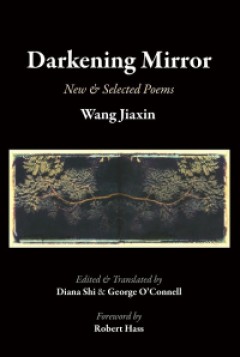But a look at the rest of the list: There’s Sonic Peace, by Kiriu Minashita, translated by Eric E. Hyett and Spencer Thurlow
(Phoneme Media), which is poetry. But Junichirō Tanizaki’s Devils in Daylight, translated by J. Keith Vincent, and The Maids, translated by Michael P. Cronin (both New Directions), and Notes of a Crocodile by Qiu Miaojin 邱妙津, as translated by Bonnie Huie (New York Review Books)? Those are works of fiction.
The Stryk Prize is–or was–a
poetry translation prize. The prize’s
Wikipedia page still makes that clear:
Eligible works include book-length translations into English of Asian poetry or source texts from Zen Buddhism, book-length translations from Hindi, Sanskrit, Tamil, Thai, Vietnamese, Chinese, Japanese, and Korean into English.
But this year, for the first time, works of prose fiction are on the shortlist.
I think this is a problem.
Seems to me that the Stryk prize was endowed with the mission of promoting a certain kind of work–translation of poetry and Zen texts from Asian languages. I believe in, and I’d bet a lot of translators believe in, the room to interpret those categories broadly. But for the Stryk nominations to be suddenly–and without public consultation–open to works of fiction, the poetry translations in question are bound to be crowded out, not recognized or promoted.
A look at
Paper Republic’s wrap-up of translations published in 2017 gives a sense of what I’m talking about, even if it also offers an idea why some might want the prize to be eligible to translated fiction. Something like twenty titles of fiction translated from Chinese, but only five books of poetry. And yet look at that list: Liu Waitong 廖偉棠, one of Hong Kong’s most interesting poets;
Narrative Poem 敘事诗, by Yang Lian 杨炼, translated by Brian Holton, and two titles translated by Eleanor Goodman (who won the Stryk in 2015 for her translations of Wang Xiaoni
王小妮), including the anthology Iron Moon, the most reviewed anthology of Chinese poetry to appear in English in decades. I think it’s scandalous that neither Goodman nor Holton are on this year’s Stryk shortlist. Which just goes to show: if poetry is going to compete with fiction, and if the judges are primarily translators of fiction, then poetry translators are not going to get recognized. Are they?Word is that ALTA didn’t make this change to increase the number of submissions, but rather simply received submissions of fiction from overzealous publishers. They asked the source of the funding about whether prose was eligible, and the source seemed not to have any issues with the eligibility of fiction. So the description of the award was revised.
But this is a problem not only because of crowding out poetry (which indeed already gets the short end of the proverbial stick when it comes to modern Asian literature), but also because this change was not done transparently. If this was really going to be a prize that includes prose, then more presses that published prose translations should have been informed so they could submit their books. Not to mention how this affects the translators–as well as the poets in Asia hoping to gain readership in translation (I don’t know about poets in other countries, but Chinese-language writers are very aware of the Stryk Prize). The more I think about it, the bigger I think this problem is.
Good luck to this year’s shortlisted candidates!


 Sixth Tone
Sixth Tone 


